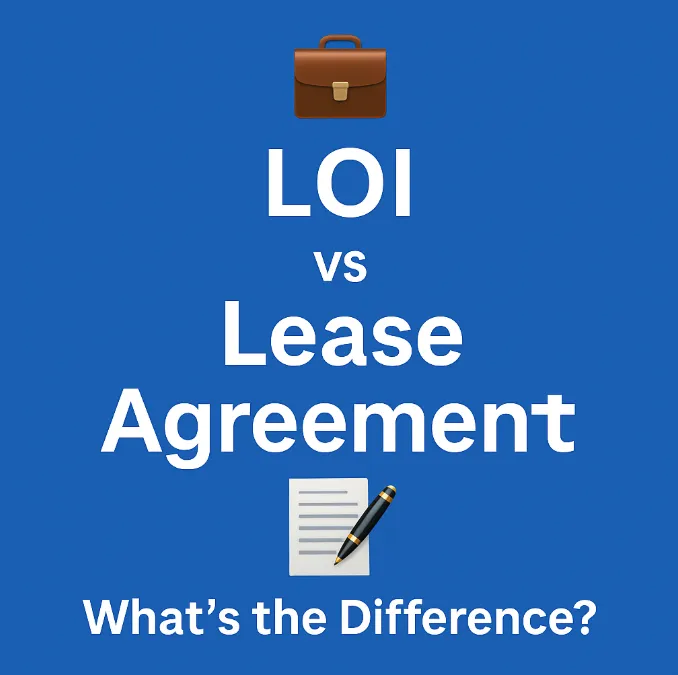Your Trusted Houston Commercial Real Estate Brokerage
Viking Enterprise LLC is part of eXp Commercial, an agent-led, cloud-based commercial real estate brokerage with agents across the globe.
Email: [email protected]
Call: (281) 222-0433
Your Trusted Katy / Fulshear & Houston Commercial Real Estate Brokerage
Viking Enterprise LLC is part of eXp Commercial, an agent-led, cloud-based commercial real estate brokerage with agents across the globe.
Looking to invest, buy, sell or lease? We can help.
Looking to invest, buy, sell or lease? We can help.
FEATURED PROPERTIES




OUR FEATURED TENANTS & CLIENTS
eXp Commercial - Viking Enterprise Team's real estate network provides unparalleled commercial real estate services to Tenants and Landlords around the Katy- Houston area. Our knowledge, experience, and reputation sets us apart from many firms.
A commercial property owner might have various plans that would necessitate the services of a commercial real estate broker. Some of the common scenarios include:
1. Selling the Property: If the owner decides it’s time to sell the property, a commercial real estate broker can help determine the market value, market the property effectively, and negotiate with potential buyers to get the best possible price.
2. Leasing Space: For property owners looking to lease out part or all of their commercial space, a broker can help find suitable tenants, negotiate lease terms, and ensure the lease agreements meet all legal requirements and serve the owner’s best interests.
3. Acquiring More Properties: Owners looking to expand their portfolio would benefit from a broker's knowledge of the market, access to listings, and negotiation skills to secure additional properties at favorable terms.
4. Property Management: While not all brokers offer this service, some commercial real estate brokers or their affiliates offer property management services. This can be particularly appealing for owners who prefer a hands-off approach or are managing properties from a distance.
5. Market Analysis: Owners considering future developments, renovations, or rebranding of their property might engage a broker for a comprehensive market analysis. This helps in understanding current market trends, the demand for different types of spaces, and potential returns on investment for various strategies.
6. Refinancing: In situations where a property owner is looking to refinance their property, a commercial real estate broker can provide valuable insights into the property’s current market value, assist in gathering necessary documentation, and even help in finding the best financing options.
7. Partnership or Investment Opportunities: Owners interested in exploring partnerships, joint ventures, or seeking investors for expansion or development projects might use a broker to find and vet potential partners or investors.
8. Consulting on Zoning and Use Changes: When contemplating a change in the use of the property or dealing with zoning issues, a broker with experience in local regulations and the specific property type can provide guidance and strategic planning assistance.
9. Exit Strategy Planning: For owners looking to plan an exit strategy from their investment, whether it’s through a strategic sale or a gradual winding down of operations, brokers can provide market insights, timing advice, and valuation services to optimize the exit process.
In any of these scenarios, the expertise and services provided by a commercial real estate broker can save the property owner time and money, while also providing access to a wider network of potential buyers, tenants, and industry professionals. Give us a call today!
Reviews

💼 LOI vs Lease Agreement 📝: Know the Key Differences Before You Sign
💼 LOI vs Lease Agreement 📝: Know the Key Differences Before You Sign
🧾 Letter of Intent vs Lease Agreement 💼: What Every CRE Client Should Understand
LOI vs Lease Agreement: What’s the Difference and Why It Matters in CRE
When it comes to commercial real estate, understanding the difference between a Letter of Intent (LOI) and a Lease Agreement is crucial—whether you're a tenant, landlord, investor, or broker. These documents serve different purposes in the leasing timeline, and confusing the two can lead to delays, misunderstandings, or even legal disputes.
Here’s a clear breakdown of what sets them apart—and how they work together in a typical transaction.
🧾 What Is a Letter of Intent (LOI)?
A Letter of Intent is a non-binding document that outlines the proposed terms of a lease deal. It’s essentially a handshake in writing.
Key elements in an LOI usually include:
· Lease term (length of the lease)
· Base rent and any escalations
· Security deposit
· Use clause (what the space will be used for)
· Timeline for execution
While not legally binding, the LOI serves as a roadmap for the attorneys and brokers to draft the formal lease. It reduces time spent negotiating later by identifying deal-breakers upfront.
📑 What Is a Lease Agreement?
A Lease Agreement is a legally binding contract that outlines the finalized terms between a landlord and tenant. It goes beyond basic terms to address legal protections, operational clauses, and financial responsibilities.
Key elements in a lease agreement include:
· Rent structure and payment obligations
· Repair and maintenance responsibilities
· Insurance and indemnity clauses
· Renewal options or early termination penalties
· Default remedies and legal recourse
The lease becomes enforceable once it’s signed by both parties.
💼 Why the Distinction Matters in Brokerage
As commercial real estate brokers, we often act as the translators between business owners and legal counsel. Helping our clients understand the difference between an LOI and a lease agreement can save time, manage expectations, and streamline negotiations.
Many clients think signing an LOI means they’re locked in. It’s our job to explain:
"The LOI is the dating stage. The lease is the marriage contract."
Getting this distinction right helps tenants avoid legal exposure and ensures landlords protect their asset value.
🧠 Final Thoughts
The LOI and Lease Agreement are both essential to a successful commercial real estate deal—but they are not interchangeable. Think of the LOI as the framework, and the lease agreement as the legally binding structure that fills it in.
Working with a qualified broker ensures you understand what you're signing, why it matters, and how to negotiate the best terms for your goals.
https://www.houstonrealestatebrokerage.com/
https://www.houstonrealestatebrokerage.com/houston-cre-navigator
https://www.commercialexchange.com/agent/653bf5593e3a3e1dcec275a6
http://expressoffers.com/[email protected]
https://app.bullpenre.com/profile/1742476177701x437444415125976000
https://author.billrapponline.com/
https://www.amazon.com/dp/B0F32Z5BH2
© 2023-2024 Bill Rapp, Broker Associate, eXp Commercial Viking Enterprise Team
eXp Commercial - Viking Enterprise team real estate network provides unparalleled commercial real estate services to Tenants and Landlords around the greater Katy & Houston MSA area. Our knowledge, experience, and reputation sets us apart from many firms.
A commercial property owner might have various plans that would necessitate the services of a commercial real estate broker. Some of the common scenarios include:
1. Selling the Property: If the owner decides it’s time to sell the property, a commercial real estate broker can help determine the market value, market the property effectively, and negotiate with potential buyers to get the best possible price.
2. Leasing Space: For property owners looking to lease out part or all of their commercial space, a broker can help find suitable tenants, negotiate lease terms, and ensure the lease agreements meet all legal requirements and serve the owner’s best interests.
3. Acquiring More Properties: Owners looking to expand their portfolio would benefit from a broker's knowledge of the market, access to listings, and negotiation skills to secure additional properties at favorable terms.
4. Property Management: While not all brokers offer this service, some commercial real estate brokers or their affiliates offer property management services. This can be particularly appealing for owners who prefer a hands-off approach or are managing properties from a distance.
5. Market Analysis: Owners considering future developments, renovations, or rebranding of their property might engage a broker for a comprehensive market analysis. This helps in understanding current market trends, the demand for different types of spaces, and potential returns on investment for various strategies.
6. Refinancing: In situations where a property owner is looking to refinance their property, a commercial real estate broker can provide valuable insights into the property’s current market value, assist in gathering necessary documentation, and even help in finding the best financing options.
7. Partnership or Investment Opportunities: Owners interested in exploring partnerships, joint ventures, or seeking investors for expansion or development projects might use a broker to find and vet potential partners or investors.
8. Consulting on Zoning and Use Changes: When contemplating a change in the use of the property or dealing with zoning issues, a broker with experience in local regulations and the specific property type can provide guidance and strategic planning assistance.
9. Exit Strategy Planning: For owners looking to plan an exit strategy from their investment, whether it’s through a strategic sale or a gradual winding down of operations, brokers can provide market insights, timing advice, and valuation services to optimize the exit process.
In any of these scenarios, the expertise and services provided by a commercial real estate broker can save the property owner time and money, while also providing access to a wider network of potential buyers, tenants, and industry professionals. Give us a call today!
Find the perfect location for your business.
Let us help your business succeed.

💼 LOI vs Lease Agreement 📝: Know the Key Differences Before You Sign
💼 LOI vs Lease Agreement 📝: Know the Key Differences Before You Sign
🧾 Letter of Intent vs Lease Agreement 💼: What Every CRE Client Should Understand
LOI vs Lease Agreement: What’s the Difference and Why It Matters in CRE
When it comes to commercial real estate, understanding the difference between a Letter of Intent (LOI) and a Lease Agreement is crucial—whether you're a tenant, landlord, investor, or broker. These documents serve different purposes in the leasing timeline, and confusing the two can lead to delays, misunderstandings, or even legal disputes.
Here’s a clear breakdown of what sets them apart—and how they work together in a typical transaction.
🧾 What Is a Letter of Intent (LOI)?
A Letter of Intent is a non-binding document that outlines the proposed terms of a lease deal. It’s essentially a handshake in writing.
Key elements in an LOI usually include:
· Lease term (length of the lease)
· Base rent and any escalations
· Security deposit
· Use clause (what the space will be used for)
· Timeline for execution
While not legally binding, the LOI serves as a roadmap for the attorneys and brokers to draft the formal lease. It reduces time spent negotiating later by identifying deal-breakers upfront.
📑 What Is a Lease Agreement?
A Lease Agreement is a legally binding contract that outlines the finalized terms between a landlord and tenant. It goes beyond basic terms to address legal protections, operational clauses, and financial responsibilities.
Key elements in a lease agreement include:
· Rent structure and payment obligations
· Repair and maintenance responsibilities
· Insurance and indemnity clauses
· Renewal options or early termination penalties
· Default remedies and legal recourse
The lease becomes enforceable once it’s signed by both parties.
💼 Why the Distinction Matters in Brokerage
As commercial real estate brokers, we often act as the translators between business owners and legal counsel. Helping our clients understand the difference between an LOI and a lease agreement can save time, manage expectations, and streamline negotiations.
Many clients think signing an LOI means they’re locked in. It’s our job to explain:
"The LOI is the dating stage. The lease is the marriage contract."
Getting this distinction right helps tenants avoid legal exposure and ensures landlords protect their asset value.
🧠 Final Thoughts
The LOI and Lease Agreement are both essential to a successful commercial real estate deal—but they are not interchangeable. Think of the LOI as the framework, and the lease agreement as the legally binding structure that fills it in.
Working with a qualified broker ensures you understand what you're signing, why it matters, and how to negotiate the best terms for your goals.
https://www.houstonrealestatebrokerage.com/
https://www.houstonrealestatebrokerage.com/houston-cre-navigator
https://www.commercialexchange.com/agent/653bf5593e3a3e1dcec275a6
http://expressoffers.com/[email protected]
https://app.bullpenre.com/profile/1742476177701x437444415125976000
https://author.billrapponline.com/
https://www.amazon.com/dp/B0F32Z5BH2
© 2023-2024 Bill Rapp, Broker Associate, eXp Commercial Viking Enterprise Team
Find the perfect location for your business.
Let us help your business succeed.
9600 Great Hills Trail, Suite 150w Austin, TX 78759 |
855.450.0324 xx255
Texas Real Estate Commission Consumer Protection Notice Texas Real Estate Commission
Information About Brokerage Services eXp Commercial LLC #9010212
Viking Enterprise LLC #9009614

Sign up to receive the latest news on property investment and commercial real estate listings.
Contact Us
901 S Mopac Expwy, Bldg 2, Suite 350 Austin, TX 78746 | 512.474.5557Texas Real Estate Commission
Consumer Protection Notice Texas Real Estate Commission Information About Brokerage Services Reliance Retail, LLC #603091
Texas RS, LLC #9003193 | RESOLUT RE Is Licensed In Louisiana #0995694083


Facebook
Instagram
X
LinkedIn
Youtube
TikTok